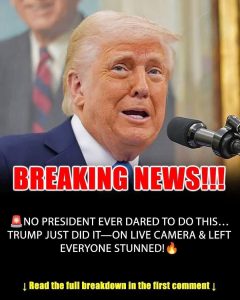
In a moment that’s now drawing intense scrutiny from press freedom advocates, former President Donald Trump made remarks that many see as a direct challenge to the First Amendment. Appearing before reporters this week, Trump warned that “changes are coming” — not about policy or the economy, but about the media itself.
His statement followed critical coverage of a recent military decision involving Iran that sparked national debate. Trump accused major outlets, including CNN and The New York Times, of spreading what he described as “unfair” and “biased” reports. Rather than addressing the substance of the criticism, he shifted his focus to the press, claiming that “the media has been out of control.”
The moment quickly went viral, with clips circulating across social media platforms and drawing widespread reaction from journalists and civil rights advocates alike. The Committee to Protect Journalists (CPJ) and other media watchdogs expressed deep concern, calling Trump’s tone “a serious escalation.” One CPJ analyst noted that “it’s one thing for a political leader to dispute coverage — it’s another to threaten consequences for it.”
Their statement emphasized that a free press is essential for democracy and that government leaders should defend, not undermine, that freedom. As the nation watches closely, the question remains: how should a free press respond when its independence is challenged? Many argue that the only answer is continued transparency, accountability, and the courage to keep asking hard questions — no matter who is in power.